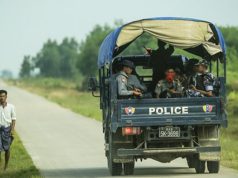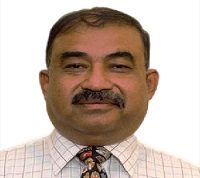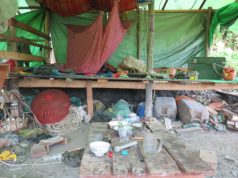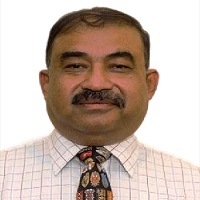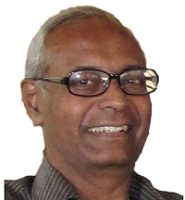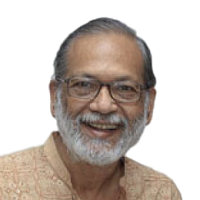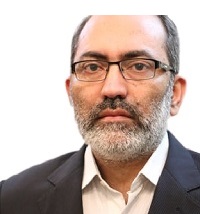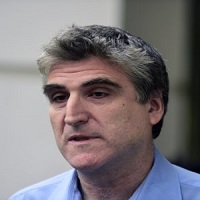(Exclusive): Myanmar — beset with a myriad of internal problems, including a host of border security issues and tensions between the military top brass and the civilian government – is molding an Asia-first foreign policy. In some ways it is reminiscent of the ASEAN-first policy of the previous government of President Thein Sein. However it is far more nuanced – and needs to be in view of changing international environment.
With a new isolationist era, following Brexit and Trump, the democratic government of Myanmar needs the support of the countries in the region – and the two big neighbouring powers, China and India. This is clearly reflected in a spate of international meetings that are in progress.
One of the most important is the ASEAN foreign ministers’ retreat, which has just concluded in the Philippines. Later this week, a Chinese-Myanmar dialogue will take place in Naypyidaw – involving representatives from the military and foreign ministries in both countries, which was established last year.
At this series meetings several of the sensitive issues pre-occupying Myanmar will be discussed: including the peace process – getting the remaining ethnic groups to sign the National Ceasefire Agreement – and the situation in Arakan, where border security has become a pressing matter, and the treatment of the thousands of Muslims there – know as Bengalis but who call themselves Rohingyas. Myanmar is seeking international support and assistance to help resolve them.
Since assuming power almost a year ago – after a landslide electoral victory – the country’s top civilian leader, the State Councilor, Aung San Suu Kyi, who is also the foreign minister has trod a very wary path in foreign policy – carefully balancing the international powers, as they seek dominance in their relations with Myanmar. Aung San Suu Kyi has cautiously crafted a strategic vision that emphasizes the country’s international outlook – based on a balanced and independent approach.
Myanmar’s strategic position – geographically at the crossroads of Asia – nestled between the two regional powers, China and India, leaves the country in an unenviable position of being at the center of any new “great game”, complicated by the US’s interest in the region. Both Beijing and Washington have much to offer Myanmar. But with further regional integration on the cards – with the ASEAN Economic Community (AEC) that came into force at beginning of this year, Myanmar has now to balance ASEAN, China, India and the US to be able to maintain an independent international stance, and not tilt towards any of the “big powers” – in the region or else where.
Aung San Suu Kyi’s forays abroad since she took office have underlined this approach. Her diplomatic offensive started in May, when she accompanied the President Htin Kyaw on a visit to Laos – then the chair of the South East Asian regional bloc, ASEAN. This was followed by visits to Thailand, China, the United Kingdom and the United States, and India. Although there were clear bilateral issues on each of these trips – it also signaled Myanmar’s evenly calibrated foreign policy – an independent and non-aligned approach, but with the neighbours and Asia, being at the center of the revised foreign policy.
Two of the country’s key internal concerns – the problems in Rakhine and the peace process – have inevitably embroiled Myanmar in the tentacles of the regional powers, especially China, India and Thailand. Chinese economic penetration in Myanmar is already significant, and Myanmar’s military is heavily dependent on China, for military equipment, weapons and training. And Beijing will no doubt try to lever both areas to strengthen its influence over the NLD-led government.
When Aung San Suu Kyi and her party overwhelmingly won the 2015 elections, there were many – especially within the country’s military – who feared that the country’s foreign policy would take a tilt towards the US and the West generally. This has not actually happened, to many peoples’ relief. The State Counselor has opted to keep Washington at arms length, now she is in power. That is not to say that the US does not remain a firm friend, though Washington, under Donald Trump, may not place the same priority on US-Myanmar relations as the Democrats — Hilary Clinton and President Barack Obama — did.
The US pivot towards Asia is largely aimed at constraining or containing China’s growing influence in the region. For Washington – now that relations with the Philippines are strained – it is Japan, Taiwan, Singapore and Myanmar that form the main axis of friendship, and sets up an encirclement of China. While Myanmar wants to maintain good strong relations with Washington, this does not mean favoring Washington over Beijing, or vise versa. But China will always loom large on Myanmar’s radar: inevitably as it is a large neighbor, sharing a long border to the north.
“I cannot afford to offend China, as they are our powerful neighbor,” Aung San Suu Kyi told me in March 2003, during a long interview at the NLD headquarters.
And there is nothing since November to suggest that this recognition underlying her outlook has changed. In fact she has been at pains to allay any fears Beijing might have that Myanmar under her leadership would favor Washington over Beijing – hence the strategic decision to visit China before the US last year. This is not to say that Myanmar’s leaders – in government or the military – fully trust China.
While Beijing is largely concerned about securing markets, it is also about increasing Beijing’s strategic thrust in the region, especially Myanmar, and developing trade routes through the South-east Asia – connecting China’s border regions with nearby markets – central Asia to the north, and the Indian sub-continent and the Middle East to the west. Beijing is not coy about its strategic vision, calling it the “belt and road” policy, or the new “silk road”. And Kyauk Phyu – in the west of Myanmar — falls right into this orbit.
But there is no doubt that Myanmar will not allow itself to be used as a US pawn against China in any way. Relations between the two will continue to be delicately balanced; and Myanmar will maintain an independent and unaligned stance.
But Myanmar needs both China and ASEAN to support it peace efforts. Both China and Thailand have already played a constructive role in the peace process – influencing the ethnic groups along the border, especially the Wa, Mongla and Kokang groups to sign the NCA and participate in the forthcoming second round of Panglong, or the union peace conference as it is now called.
It is in China’s interests that the ethnic groups that have not already signed do so – and participate in the political dialogue that follows — as this would be a major step towards their strategic goal — a peaceful and stable border. For their part, the Thais are also pitching and trying to pressure the Mon to sign – warning them that no fresh flows of refugees will be allowed to cross in Thailand in future.
But Myanmar is also mindful that they may yet need ASEAN and Chinese support to deflect international criticism of their recent security crackdown in Rakhine area of Arakan state and the situation of the Rohingyas there. A recent UN report, described the conditions in Rakhine as “crimes against humanity”. The French government has already strongly criticized the Myanmar government – and issued a demarche.
The UN human rights’ envoy is currently in Bangladesh, interviewing Rohingya refugees. She is due to table her full report to the UN Human Rights Council in March. Activists are also clamouring for the situation to be put before the UN Security Council. In that eventuality the new democratic Myanmar will need ASEAN’s support to fend off the move, and in the last resort rely on China to veto any attempt to sanction Myanmar.
The new government would then be forced to follow the path of previous Myanmar governments – and count on Asian support: their regional neighbours in ASEAN, China and India. But if nothing else it shows the veracity of maintaining an independent and neutral foreign policy, but with Asia playing a central role.
Larry Jagan is a journalist and Myanmar specialist, based in Yangon. He is also the author of several books and many academic articles on Myanmar. He has spent more than forty years covering the Asia region. He was Asia editor for the BBC World Service for more than a decade. This is Larry’s exclusive column for the Southasianmonitor.com



